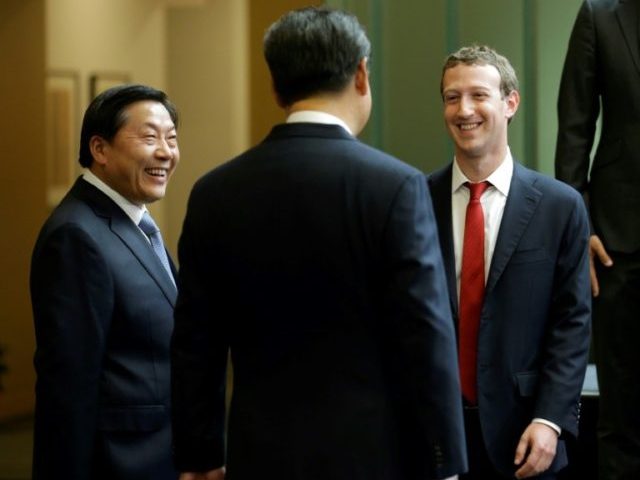Facebook is seeking entry into China’s digital market — which will require compliance with dictates from China’s ruling Communist Party, as Google is doing in a censored search project with China — according to a Wednesday-published Bloomberg report.
Facebook “is seeking to enter” the Chinese market, reported Bloomberg. But if it chooses to do business in China, it will have to fall in line with the communist government’s tight rules and Internet censorship.
According to Bloomberg, Chinese state authorities have directed Facebook to censor the official page of the pro-independence National Party; a political party seeking Hong Kong’s separation from China into autonomous statehood. Facebook declined to state how it would respond to the demand for its deployment of political censorship.
Hong Kong describes the National Party and its communications as a risk to national security.
Weeks ago, Facebook COO Sheryl Sandberg said her company “would only operate in a country where we could do so in keeping with our values.” In a 2018 commencement speech at MIT, she advised new graduates to uphold “the right values”:
Know that you have an obligation to never shy away from doing the right thing, because the fight to ensure tech is used for good is never over; to make sure that technology reflects and upholds the right values, we have to build with awareness, and the best way to be more aware is to have more people in the room with different voices and different views.
In a March panel discussion, Sandberg framed “free expression” as a value championed by Facebook: “Free expression is fundamental to Facebook, it’s a very deep value for us.”
“We moderate content shared by billions of people and we do so in a way that gives free expression maximum possible range,” claimed Richard Allan, Facebook Vice President of Policy Richard.
Facebook rejects the application of the First Amendment as a standard for its moderation of content on its digital platforms. The company claims to prohibit “hate speech,” which it alleges “may promote real-world violence.”
Reasonable people can differ over the parameters of free speech and expression, wrote Facebook CEO Mark Zuckerberg earlier in September: “When it comes to free expression, thoughtful people come to different conclusions about the right balances.”
Follow Robert Kraychik on Twitter.

COMMENTS
Please let us know if you're having issues with commenting.